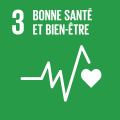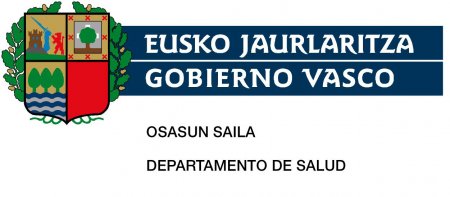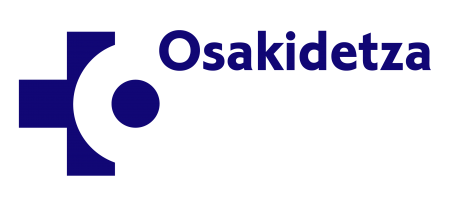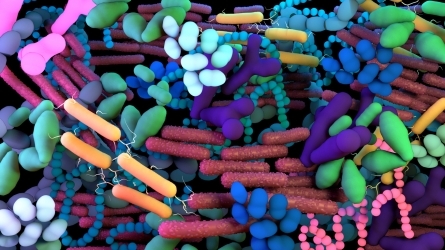
Health and Language VIII: integrated health care in bilingual and multilingual areas
What is integrated health care? How is it organised in the Basque Country and internationally? what kind of challenges and opportunities does it entail in bilingual and multilingual eras? This Summer Course has been created with the aim of answering these and many other questions.
Description
The World Health Organization (WHO) declares urgent the choice and prioritization of the Integrated Health Care Model (ASI) and regards it as the paradigm of the current model of management, financing and organization of health services. However, there is no single and universal model of integration applicable everywhere and at any time; it is a subject to be considered from various perspectives, which requires strong evidence in decision-making.
As proposed by the WHO, integrated care would be a concept that combines resources, organization, management and provision of services related to diagnosis, treatment, care, rehabilitation and health promotion. Integration is a way to improve services in terms of accessibility, quality, user satisfaction and efficiency.
In the Autonomous Community of the Basque Country, the concept of an Integrated Health Organization (OSI) is used to develop structural integration. The OSIs would be the new structures created to address fragmentary attention, especially to promote integration and coordination between levels. The OSI is a new structure that combines primary care and hospitals, combining the clinical area and the structure or organizational unit. The area of structure can be divided into three areas: management, funding and information system. The aim would be to develop coordinated, efficient and quality services.
The merger of service units or health organizations does not in itself guarantee integrated health care. Cultural change may be considered indispensable for the reform and reform of any institution. To this end, strong leadership and the involvement of professionals, users, managers and social partners and close cooperation between them are essential.
The way in which the ASI model can operate in bilingual and multilingual areas and the challenges and opportunities of linguistic diversity have not been explored so far. It may be said that the two subjects have gone separately, one the ASI itself, and the other the subject of language and attention. ASI being the current model of health care, and the subject of language being of the utmost importance, the aim of this course is to jointly analyse the two from the perspective of the various actors involved in the ASI.
With a view to the Basque Country, the linguistic planning of Osakidetza has been based primarily on Decree 67/2003, that is, on regulations prior to the creation of the OSIs. So far, for example, in determining the priorities of each service unit, account has been taken of the percentage of Basques in the care area.
In the ASI model, both in the Basque Country and at the international level, providing and providing integrated care in their own language to patients who have spoken minority languages has become work between different types of staff, disciplines, health centres and institutions. All of this poses new challenges and opportunities, including the development of bilingual computer media, the channelling and sharing of patient services, as well as language limitations among professionals. In ours, medical history is a topical subject in both official languages. Internationally, as in Canada, clinical standards have been created. This course also aims to explore how to work in bilingual or multilingual areas.
Integrated health care is not limited to the clinical area. It can be described as much more complex and covers other areas: mental health, care, community pharmacy, rehabilitation services, care for dependents, etc. This course is therefore intended to collect experiences, perspectives and contributions from different professionals in different fields.
What is integrated health care? How is it organised in the Basque Country and internationally? What kind of challenges and opportunities does it bring in bilingual and multilingual areas? What is the view of professionals of different levels and fields? Patients? This summer course is born with the intention of answering these and many other questions.
Objectives
Discuss integrated health care in bilingual and multilingual áreas.
Analysis of the organization of integrated health care in the Basque Country, including in bilingual and multilingual international areas.
To know the perspective of health professionals at different levels and areas on the subject.
Activity directed to
- All public
- University student
- Students not from university
- Teachers
- Professionals
In collaboration with
Program
12-09-2025
Erregistroa
Presentation by the Director of the activity
- Jon Zarate Sesma | EHU - Irakasle-ikertzailea
- Aitor Montes Lasarte | Osakidetza - Famili medikua
“Asistentzia Sanitario Integratua Osakidetzan“
- Joseba Igor Zabala Rementeria | Osakidetza - Integrazio Asistentzialeko eta Kronikotasuneko Zerbitzuko arduraduna
“Arreta Sanitario Integratua ikuspegi akademikotik. IFIC eta IJIC.“
- Edelweiss Aldasoro | IFIC - Integrated Care Academy, IFIC arduraduna
“Zirkuitu elebiduna Debabarreneko ESIko tokoginekologiako zerbitzuan“
- Garbiñe Garai Letamendi | Osakidetza - Debabarreneko ESIko euskara teknikaria
- Alaitz Telleria Bereziartua | OSAKIDETZA - Debabarreneko ESIko emagina
- Oihana Apellaniz Badiola | Osakidetza - Debabarreneko ESIko ginekologoa
Pausa con cafe
“Farmazia komunitarioa arreta sanitario integratuan. Farmazialarien bizipena eremu elebidun eta eleaniztunetan “
- Amaia Urionagüena De La Iglesia | EHU - Unibertsitateko irakasle-ikertzailea
“Lehen mailako arretako osasun mentala gales hiztunen eremu batean“
- Sali Burns | Betsi Cadwaladr Unibertsitate - Osasun mentaleko lehen mailako arretako erizaina eta unibertsitateko irakaslea
Break
“Euskararen erabilera lehen mailako arretako indarguneetan: eskaintza aktiboa“
- Aitor Montes Lasarte | Osakidetza - Famili medikua
“Osasun publikoko interbentzioak Osasun teknologiak ebaluatzeko eremu elebidun eta eleaniztunetan“
- Iñaki Gutiérrez-Ibarluzea | Eusko Jaurlaritza - Eusko jaurlaritzako Ikerketa, Berrikuntza eta Ebaluazio Sanitarioko zuzendaria
Closing session
- Joxerramon Bengoetxea Caballero | EHU - Errektorea / Rector
Directors
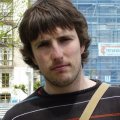
Jon Zarate Sesma
UPV/EHU
Jon Zarate Sesma (Lekeitio, 1979) es miembro del Departamento de Farmacia y Ciencias de los Alimentos de la UPV/EHU. Es profesor de la Facultad de Farmacia y vicerrector del área de Euskera y Formación Continua (2014-2021). Doctor en Farmacia (UPV/EHU, 2007) y director de la mejor tesis sanitaria en euskera, Koldo Mitxelena 2016. En los últimos años ha estado investigando en el desarrollo de transportadores no virales para terapia génica. Tiene publicados más de 20 artículos en revistas internacionales de investigación de alto nivel y una producción científica en euskera similar a la internacional en revistas como Ekaia o Elhuyar.
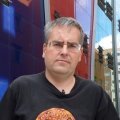
Aitor Montes Lasarte
Osakidetza
Nacido en Basauri (1972), País Vasco. Licenciada en Medicina por la UPV/EHU en 1999. En 2004 cursó la especialidad de Medicina de Familia en el Hospital de Galdakao-Usansolo (País Vasco). Actualmente es médico de familia en Aramaio, Organización Sanitaria Integrada Debagoiena (OSI), Osakidetza-Servicio vasco de salud. Miembro de la EIS (Osasungoa Euskalduntzeko Erakundea). De vez en cuando escribe artículos de opinión en la prensa vasca. Ha publicado una decena de publicaciones relacionadas con el lenguaje y la salud en revistas científicas, principalmente Osagaiz, la revista de sociolingüística BAT y la revista International Journal of Integrated Care. Escalador, ha abierto y publicado varias nuevas vías en prensa especializada.
Speakers

Edelweiss Aldasoro

Oihana Apellaniz Badiola
Oihana Apellaniz Badiola, Elgoibar 1983. Medikuntzan lizentziatua EHUn, Ginekologia eta Obstetrizian espezializatua. 2012tik ari da ginekologiako jardunean, gaur egun Debabarreneko ESIko langilea da. 2022an, ESIko emakumearen eremuko Euskara lantaldea sortu zenetik parte hartzen du. Herriko euskara elkarteko kidea, eta hiru haurren ama.
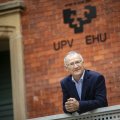
Joxerramon Bengoetxea Caballero
UPV/EHU, EHUGune zuzendaria / Secretario General de EuroBasque
Joxerramon Bengoetxea (PhD, Edinburgh, dr.h.c. Helsinki) is Professor in Jurisprudence and Sociology of Law at the University of the Basque Country (UPV/EHU) and director of the (Oñati) International Master in Sociology of Law where he teaches “comparing legal cultures”. His main research and publications are in legal reasoning, institutional legal theory, European federalism, and transitional justice. In 2021 he won the Jesus Maria de Leizaola prize given by the Basque Government for his work on Judicial Dialogues. After obtaining his Ph D under the supervision of Neil MacCormick, he worked for seven years as référendaire at the Court of Justice of the EU. He has been visiting professor at Oxford, Stanford, Helsinki, Kansai (Osaka) and EUI. He teaches Spanish constitutionalism at the Law Faculty of the University of Bordeaux. He was director of ehuGune and Secretary General of Eurobasque, and was deputy minister for Employment and Social Security at the Basque Autonomous Government.

Sali Burns

Garbiñe Garai Letamendi
DEBABARRENA ESI
Garbiñe Garai Letamendi (Oñati 1964). Soziologian lizentziatua (Deustuko Unibertsitatea. 1988). Hizkuntza plangintzan Graduondoa (EHU. 1996). Oñatiko Udaleko Euskara zerbitzuan eta Laixan euskara elkartean dinamizatzaile aritutako. Osakidetzan Euskararen Normalizazioko teknikaria da 2004tik, Erakunde zentraleko euskara zerbitzuan 2011ra arte eta Debabarreneko Erakunde Sanitario Integratuan 2011tik.

Iñaki Gutiérrez-Ibarluzea
BIOEF
Iñaki Gutiérrez-Ibarluzea es licenciado en Biología Fundamental y doctor en Neurociencia por la Universidad del País Vasco. Especialista Universitario en Epidemiología Clínica por la Escuela Andaluza de Salud Pública y la Universidad de Granada, Máster en Bioética por la Universidad Ramon Llul y el Instituto Borja de Bioética y Máster en Gestión de la Innovación Sanitaria por la Universidad de Nebrija, IDIVAL y Fundación Botín. Actualmente es Responsable de Gestión del Conocimiento y Evaluación de BIOEF, Fundación Vasca para la Innovación y la Investigación Sanitaria. Es el expresidente de la sociedad de evaluación HTAi y el presidente de EuroScan/iHTS, la sociedad internacional de información sobre tecnologías sanitarias en su ciclo de vida. Coordinador de tarea o investigador principal en 7 proyectos financiados por la UE (EXACT, INNO4COV, SAFENMEDTECH, EU-PEARL, HARMONICS, CAREMATRIX y SUSTAIN-HTA). Ha sido miembro de dos Grupos Asesores Técnicos de la Organización Mundial de la Salud para discutir sobre la evaluación de dispositivos médicos y apoyar la cobertura universal y el desarrollo de una cartera de servicios.Autor de más de 90 artículos científicos, más de 70 informes de ETS, 7 monografías y 5 capítulos de libros.

Aitor Montes Lasarte
Osakidetza
Nacido en Basauri (1972), País Vasco. Licenciada en Medicina por la UPV/EHU en 1999. En 2004 cursó la especialidad de Medicina de Familia en el Hospital de Galdakao-Usansolo (País Vasco). Actualmente es médico de familia en Aramaio, Organización Sanitaria Integrada Debagoiena (OSI), Osakidetza-Servicio vasco de salud. Miembro de la EIS (Osasungoa Euskalduntzeko Erakundea). De vez en cuando escribe artículos de opinión en la prensa vasca. Ha publicado una decena de publicaciones relacionadas con el lenguaje y la salud en revistas científicas, principalmente Osagaiz, la revista de sociolingüística BAT y la revista International Journal of Integrated Care. Escalador, ha abierto y publicado varias nuevas vías en prensa especializada.

Alaitz Telleria Bereziartua
Albizturren jaioa (1988), erizaintzan diplomatua EHUn, 2009an. Emagintzan espezializatua 2013an Donostiako unibertsitate ospitalean. 5 urtez Mendaroko ospitaleko erditze gelako eta lehen mailako arretako emaginen gainbegirale izan zen. Nazioarteko Batzorde Ziurtagiridun Edoskitze Aholkularia. Gaur egun Deba eta Mutrikuko emagin izateaz gain etxez etxeko edoskitze aholkularia eta Azpeitiako Bizi fisioterapia zentroko kolaboratzailea da.
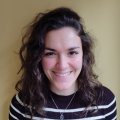
Amaia Urionagüena De La Iglesia
Amaia Urionagüena De La Iglesia (Durango, 1997) UPV/EHUko Farmazia eta Elikagaien Zientziak Saileko kidea eta Farmazia Fakultateko irakasleordea da. Farmazian doktorea da (UPV/EHU, 2025), doktorego-tesiaren izenburua: “Euskal Osasun Sistemako Farmazia Komunitarioaren eta Lehen Mailako Arretaren Integrazioa: Teorian eta Ebidentzian Oinarritutako Plan Pragmatiko bat”. Nazioarteko goi mailako aldizkari zientifikoetan 7 artikulu argitaratu ditu, horietatik bi HEFAME fundazioaren ikerketa sariarekin sarituak izan dira (2022 eta 2023. urteetan), “Farmazia komunitarioa osasun-sisteman integratzea” gaiarekin lotuta. Halaber, RSAP (Research in Social and Administrative Pharmacy) aldizkarian argitaratutako beste artikulu batek, aldizkari horretan 2024. urtean argitaratutako artikulu onenaren saria jaso du. Horrez gain, Ekaia aldizkarian ere argitaratu du, farmazia komunitarioaren eta lehen mailako arretaren integrazioaren garrantzia azpimarratuz.
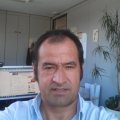
Joseba Igor Zabala Rementeria
Osakidetza
Since April 2015, he is the Head of the Integrated Care and Chronic Disease Service of the Healthcare Assistance Directorate of Osakidetza. From January/2013 to April/2015, he worked as a technician for the same service. From September 2010 to December 2012, he was a member of the Chronic Care Strategy Office at Osakidetza. From 1993 to 2010, he was the Continuing Education Manager for Osakidetza. Bachelor's degree in Psychology with a Master's degree in Human Resources from the University of the Basque Country. Diploma in Healthcare Management from EADA. He earned several diplomas related to the design, development, and evaluation of training programs, especially for clinicians and healthcare management professionals.

Jon Zarate Sesma
UPV/EHU
Jon Zarate Sesma (Lekeitio, 1979) es miembro del Departamento de Farmacia y Ciencias de los Alimentos de la UPV/EHU. Es profesor de la Facultad de Farmacia y vicerrector del área de Euskera y Formación Continua (2014-2021). Doctor en Farmacia (UPV/EHU, 2007) y director de la mejor tesis sanitaria en euskera, Koldo Mitxelena 2016. En los últimos años ha estado investigando en el desarrollo de transportadores no virales para terapia génica. Tiene publicados más de 20 artículos en revistas internacionales de investigación de alto nivel y una producción científica en euskera similar a la internacional en revistas como Ekaia o Elhuyar.
Registration fees
| Face-to-face | Until 30-06-2025 | Until 12-09-2025 |
|---|---|---|
| 25,00 EUR | 34,00 EUR | |
| - | 48,00 EUR | |
| - | 41,00 EUR | |
| - | 34,00 EUR | |
| - | 41,00 EUR | |
| - | 41,00 EUR | |
| - | 12,00 EUR |
| Live online | Until 30-06-2025 | Until 12-09-2025 |
|---|---|---|
| 25,00 EUR | 34,00 EUR | |
| - | 48,00 EUR | |
| - | 41,00 EUR | |
| - | 34,00 EUR | |
| - | 41,00 EUR | |
| - | 41,00 EUR | |
| - | 12,00 EUR |
Venue
Lekeitioko Udala Kultur Etxea
Resurrección María de Azkue Kalea, 5. 48280 Lekeitio.
Bizkaia
Sustainable development goals
Agenda 2030 is the new international development agenda approved in September 2015 by the United Nations. This agenda aims to be an instrument to favour sustainable human development all over the planet, and its main pillars are the eradication of poverty, a reduction in equality and vulnerability and fostering sustainability. It is a unique opportunity to transform the world up to 2030 and guarantee human rights for all.

3 - Good health and well-being
Guarantee a healthy life and foster the well-being of all people of all ages. Key issues: universal healthcare coverage, sexual and reproductive health, reduction in the number of road accident casualties, pollution and chemical products, reduction in maternal and neonatal mortality, the end of epidemics such as AIDS, combating hepatitis and other water-borne diseases, drug and alcohol prevention, control of tobacco.
More information